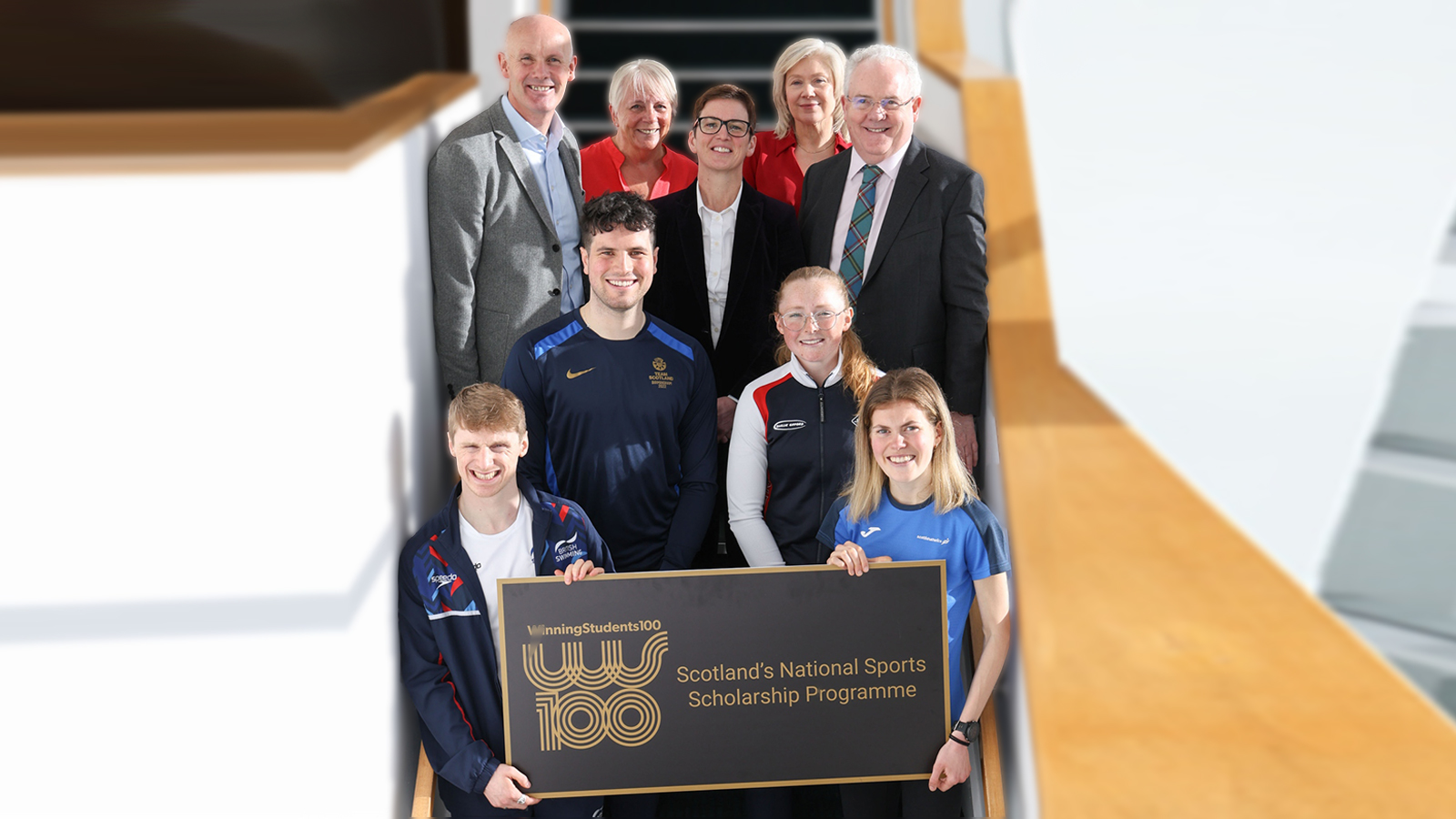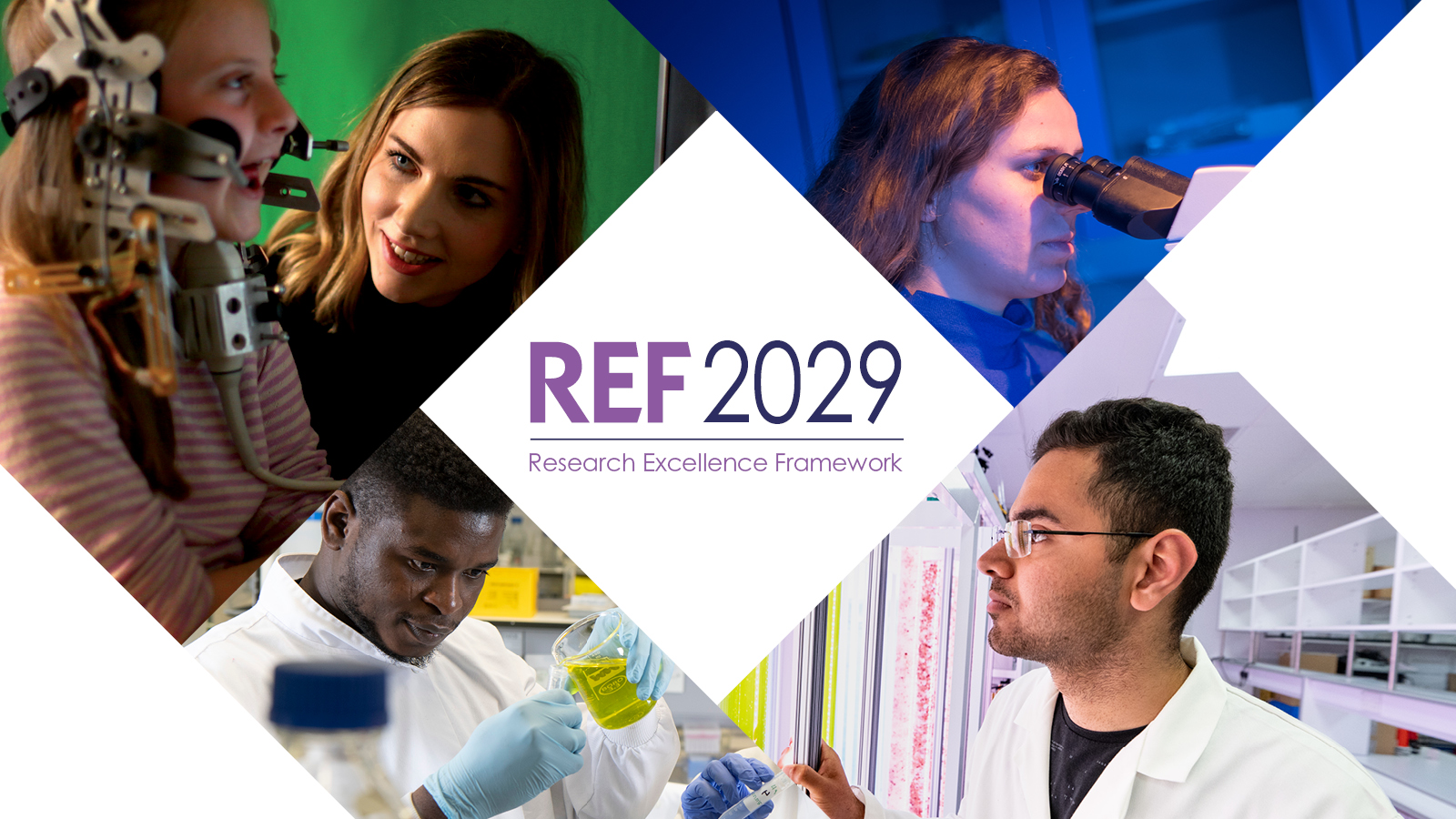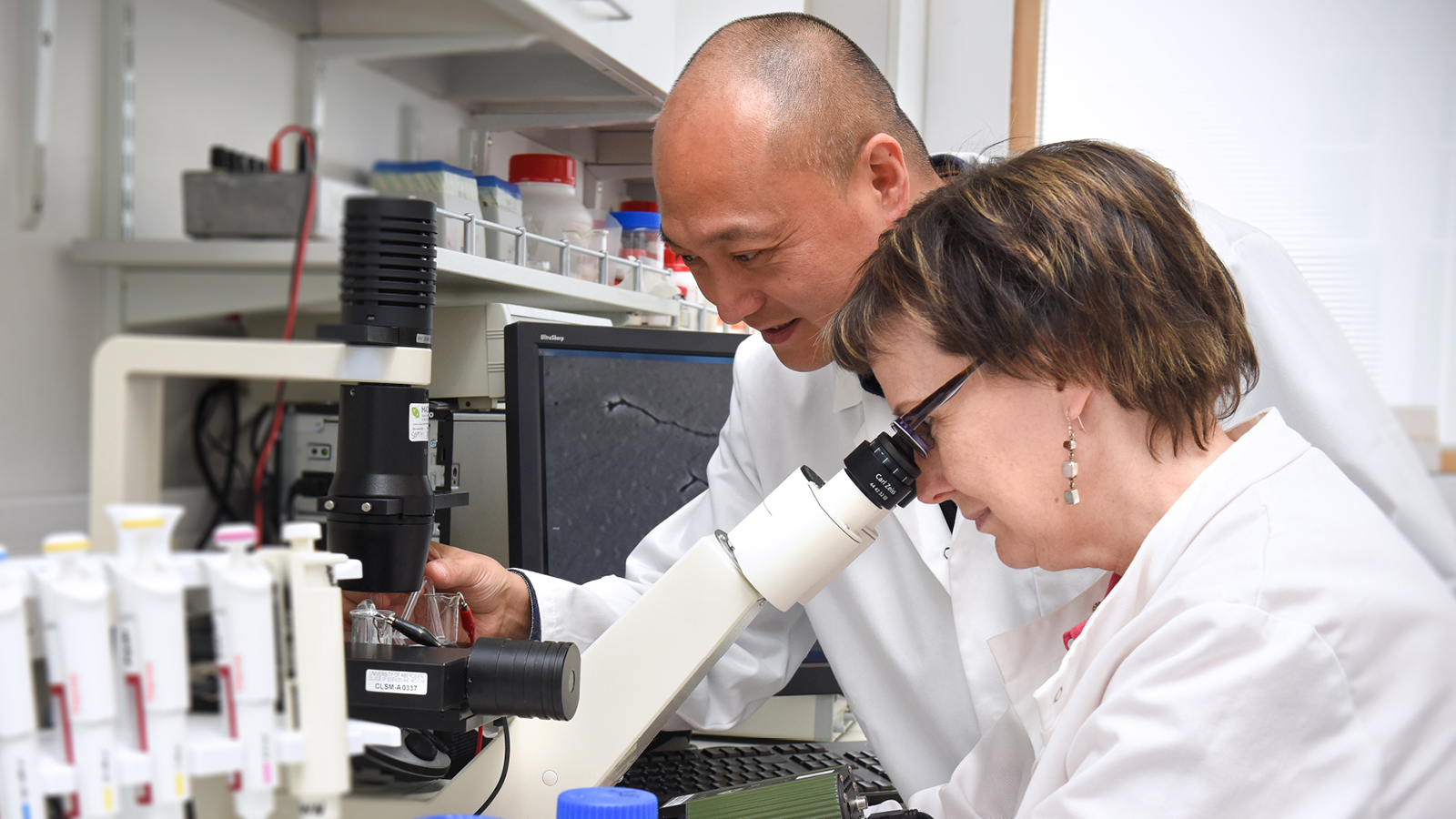

Photos (left to right): University of the Highlands and Islands, University of Glasgow, Fife College
The Scottish Funding Council (SFC) has agreed new funding for the EAUC, an organisation working in Scotland to put sustainability at the heart of tertiary education and research.
The 2024-25 funding package of £147,000 will allow the EAUC to continue to support colleges and universities towards greater environmental sustainability. The organisation will use the money to build on the success of last year’s activities which saw over 500 people benefitting from events, training sessions and webinars. For 2023-24 the EAUC also produced a series of new resources including a pioneering climate risk register tool and a sustainability champions learning pack.
The programme will continue to focus on supporting effective leadership and action to help Scotland’s colleges and universities respond to the climate and ecological emergencies. The next steps will be based around six key projects including a best-practice guide to developing a biodiversity strategy and a commuter emissions calculator.
Welcoming the new round of funding, Matt Woodthorpe, Scotland Programme Manager at the EAUC, said:
“The past 11 months have been an exceptionally busy time as EAUC Scotland has worked closely with sector staff and sector partners to develop new tools and resources, share knowledge, and advocate for effective sustainability leadership.
“This is a critical time for sustainability in Scotland and we look forward to working with the college and university sector, SFC and wider partners to deliver long term environmental, social and economic benefits for individual FHE institutions and their staff and students, and in turn the communities they serve and Scotland as a whole through this ambitious new programme.”
Martin Boyle, SFC’s Director of Policy, Insight and Analytics, said:
“In funding the EAUC programme, we are again demonstrating our determination to support progress towards a more sustainable future. EAUC Scotland does an incredible job of bringing together staff and students, colleges and universities, teaching and research to share best practice and work collaboratively to tackle the climate and ecological emergencies.
“Following the success of last year’s programme, this year’s activities are equally progressive and ambitious, and I am delighted that we are able to support them through further investment.”

Photo: City of Glasgow College, Royal Conservatoire of Scotland, University of Aberdeen, UHI Moray, University of the Highland and Islands.
Ann an Seachdain na Gàidhlig, bu toigh leinn meòrachadh air a’ bhuaidh a thug maoineachadh SFC air Gàidhlig, agus gu h-àraidh air Prògram Bogaidh na Gàidhlig aig Oilthigh Ghlaschu.
Aig ceann na bliadhna an-uiridh, fhuaras dearbhadh gun rachadh bliadhna bhogaidh phìleatach na Gàidhlig aig Oilthigh Ghlaschu a dhèanamh maireannach le gealltanas a thaobh taic-airgid san fhad-ùine bho Cholaiste nan Ealan is Daonnachd aig Oilthigh Ghlaschu.
An toiseach, chaidh Prògram Bogaidh na Gàidhlig a thairgsinn do dh’oileanaich mar phròiseact pìleatach le taic-airgid bho Chomhairle Maoineachaidh na h-Alba.
Shoirbhich leis a’ phrògram seo gu mòr oir tha na h-oileanaich aige air leantainn orra gu cosnadh ann am foghlam, stiùireadh, rianachd agus ealain chruthachail na Gàidhlig. Tha SFC rùnaichte air taic agus leasachadh a chumail ris a’ Ghàidhlig, agus mar mhòr-bhuidheann poblach nàiseanta ann an Alba, tha comas againn air tabhartas brìgheil a chur ri ionnsachadh is rannsachadh na Gàidhlig ann an colaistean is oilthighean na h-Alba.
Thuirt Gillebrìde MacIlleMhaoil, a tha na Àrd-òraidiche aig Roinn na Ceiltis is Gàidhlig agus na Phrìomh-Rannsaiche air ìre phìleatach Prògram Bogaidh na Gàidhlig:
“Is e ceum fìor chudromach a th’ ann am Prògram Bogaidh na Gàidhlig aig Oilthigh Ghlaschu airson lìbhrigeadh na Gàidhlig ann an Alba. Faodaidh oileanaich Ghlaschu a bhith ag ionnsachadh Gàidhlig le dòighean bogaidh a-nis. Tha an cùrsa a’ toirt chothroman airson ghreisean gnìomhachais aig buidhnean is sgoiltean Gàidhlig. ’S e rud prìseil a th’ ann gun do rinn an cùrsa ceanglaichean ri Ceòlas Uibhist agus gu bheil cothrom aig na h-oileanaich againn trì seachdainean a chur seachad ann an Uibhist air am bogadh sa Ghàidhlig mar phàirt de an cuid oideachaidh.
“Cha bhiodh am prògram seo air soirbheachadh mur b’ e an taic-airgid trì-bliadhna a thug Comhairle Maoineachaidh na h-Alba don ìre phìleatach aig toiseach gnothaich. Bho chionn goirid, dh’fhoillsich Colaiste nan Ealan is Daonnachd aig Oilthigh Ghlaschu gun deach taic-airgid a dhearbhadh airson Prògram Bogaidh na Gàidhlig san fhad-ùine, rud a tha a’ stèidheachadh a’ phrògraim mar phàirt dhaingeann den iomadh cuspair a th’ air a thabhann le Roinn na Ceiltis is Gàidhlig.”

The people and partnerships behind ground-breaking innovations were in the spotlight this week with the unveiling of the shortlist for the 2024 Scottish Knowledge Exchange Awards.
Organised by business-academic matchmaking organisation Interface, the awards celebrate successful partnerships at the cutting-edge of research and development. The partnerships involve universities, colleges and research institutions collaborating with businesses and other organisations to change lives in Scotland and beyond.
Applications can come from any of the partners who are asked to demonstrate a positive impact on the economy, society, and the environment.
This year’s awards ceremony will take place at The Royal Conservatoire of Scotland in Glasgow on 14 March, when the winners will be presented with awards in seven categories.
The full list of finalists can be found on the Interface website.

Photo: University of the West of Scotland
Figures out today from the universities admissions service, UCAS, show that 40,760 Scots had applied to start a degree course at a Scottish university by the annual January deadline; a 3% increase on the position this time last year.
Contributing to the rise was a 0.4 percentage point growth in those applying to university from Scotland’s most deprived areas, marking a further step towards fair access to higher education.
The continuing strong demand for Scottish university places amongst Scottish school leavers also played a part in the increase. This year’s application figure for 18 year olds and under living in Scotland is 20,550, the second highest for almost a decade.
The report suggests the number of international students applying to Scottish universities from outside the European Union has levelled off over the last few years with the application numbers for 2024-25 remaining similar to last year. Meanwhile, the number of people applying from within the European Union is down by 5%.
Overall, the total number applying for places has decreased this year for universities both north and south of the Border, down 1.9% in Scotland and 0.7% in England. Universities in Wales and Northern Ireland have seen small increases in applicants compared with 2023-24.
The full 2024 cycle applicant figures for the January deadline are now available on the UCAS website.

Winning Students 100 was launched at the University of Stirling.
Scottish student athletes will be able to continue to combine their college or university studies with training for sporting success thanks to funding from the Scottish Funding Council (SFC) and sportscotland.
Winning Students was established with SFC funding in 2008 and saw over 1,700 scholarships awarded during its first phase. Well known athletes who have benefited from the scheme include Olympic medallists Laura Muir, Duncan Scott, Vicky Wright and Seonaid McIntosh.
Now, the programme is set to continue until 2028 and is being relaunched as Winning Students 100. The newly-branded initiative will provide athletes with grants of up to £3,000 and offer them additional support such as academic flexibility. Also new under Winning Students 100 is a hardship fund offering additional support to eligible student athletes.
106 scholarships have been awarded for 2023-24 across 28 different sports and 21 universities and colleges. New scholars for the revamped programme include current Olympic champion, Hailey Duff, Paralympic medallist, Lewis Stewart and under 23 European 10,000 metre record holder, Megan Keith – one of Scottish athletics’ leading prospects.
Commenting on the impact of Winning Students 100 on her sporting and academic endeavours, Megan, said:
“I really appreciate the generous support from Winning Students 100 for the upcoming year. In what is looking like an exciting year of competitions, the scholarship will help fund the travel required to train and compete to the best of my ability”
Karen Watt, Chief Executive of the Scottish Funding Council, said:
“Having funded the Winning Students programme from the start, we’re incredibly proud it has helped so many people to be successful college or university students alongside developing a career in sport. The achievements of previous Winning Students in life and in sport speak volumes for the benefits of the programme, and I wish the new scholars every success.”

Photos (left to right): University of Aberdeen, University of the Highlands and Islands, University of Glasgow
Scotland’s universities are set to benefit from an additional injection of research funding to the value of £5.8m. The additional funding was announced by Minister for Higher and Further Education Graeme Dey at Edinburgh Napier University on 7 February.
Recognising that university research and knowledge exchange directly impact the quality of teaching, universities will be asked to direct this additional funding towards a range of research and innovation activity that supports teaching, including but not limited to:
- Research into education and teaching excellence.
- Ensuring students and staff are equipped with the latest knowledge to support entrepreneurialism.
- Student and staff training.
Welcoming the announcement, SFC Director of Research and Innovation, Helen Cross, said:
“We are delighted to be supporting Scotland’s universities with additional funding for research. We recognise the interdependencies between teaching and research and therefore look forward to seeing the outputs from this additional funding and how individual institutions will put it to best use based on their individual missions and priorities.”
Professor Stephen Decent Universities Scotland Research, Knowledge and Exchange committee Convener said:
“Scottish Universities contribute significantly to the economy, and we welcome this strategic decision from the Scottish Government to pass the Regional Innovation Fund onto the sector in recognition of that vital work. This investment will also provide our universities more opportunities to support the Scottish Government’s Innovation Strategy, giving them an important advantage in research and innovation.”
Full details on institutions’ individual allocations.

Converge, Scotland’s leading entrepreneurial development programme for universities and research institutes, has officially opened for applications to its 2024 programme.
More than £280,000 in funding and support is available to the winners and runners-up across four challenge categories; Converge, Create Change, KickStart, and Net Zero. Those who make the cut will also enjoy access to the advice, networking events, and training that make Converge a highly regarded company creation initiative.
Part-funded by the Scottish Funding Council, Converge has supported more than 670 people to launch more than 420 companies over the last 13 years and has raised £360 million in follow-on funding along the way. Companies formed by Converge alumni have an 80% survival rate after three years.
Dr Claudia Cavalluzzo, executive director of Converge, said:
“Converge is committed to empowering and supporting the next generation of diverse founders and innovators who are driven by purpose and passion to make a difference in the world.
“We take a collaborative, ecosystem approach – working closely with universities, research institutes, investors, corporate partners and other organisations to help these brave individuals turn their dreams into reality. By backing talented, mission-led founders and connecting them to the full range of Scotland’s entrepreneurial support system, we can have an even greater collective impact.
“Whether it’s a climate-focused business like Robocean who won the 2022 Converge Net Zero Challenge or a company addressing other societal needs, our goal is to foster more inclusive innovation and harness Scotland’s spirit of invention to build a better future.”

Scotland’s Commissioner for Fair Access, Professor John McKendrick, has published his first annual report since taking up the post last year. In his report, Professor McKendrick considers how the framework for promoting fair access can be further strengthened.
Fair access is a commitment to ensure that learners from Scotland’s most disadvantaged backgrounds are able to realise their potential through higher education. The aim is that by 2030, students from the 20% most deprived areas should represent 20% of entrants to higher education.
The report confirms the 2021 interim target of 16% was met but also notes a slight fall from 16.7% to 16.5% in the proportion of entrants to Scottish higher education institutions from the most deprived areas last year. The focus is now on the 2026 goal of 18%.
The Commissioner aims to produce a second report later this year following the publication of the Scottish Funding Council’s 2022-23 Report on Widening Access. The SFC report includes information on students progressing onto their second year of study. As part of a wider call for a better understanding of students’ experiences and outcomes the Commissioner has called for future reports to track progression rates for all years of study and changes in the use of the SIMD20 measure.
The Commissioner recognised the success of Scotland’s Community of Access and Participation Practitioners (SCAPP), established in 2019 to support the professional development of staff working in widening access teams, and asked the Scottish Funding Council to commit to more secure and longer-term funding, It is funded by SFC alongside the National School Programme and the Scottish Wider Access Programme.
In a further recommendation, the Commissioner asks SFC and its partners to look into creating a new web-based resource to give prospective students an easy and accessible way of finding the support they need to help them into higher education.
Karen Watt, Chief Executive of the Scottish Funding Council, said,
“We welcome the Commissioner’s report and recognise the important work that takes place in universities and colleges across Scotland in creating fairer access to higher education.
“While progress has been made, it is also clear there is still work to do. The Scottish Funding Council will continue to play a full role in tackling this collective challenge, with the Commissioner, the universities and colleges we fund, and wider stakeholders, in order to support the achievement of the 20% target by 2030.”
Higher education – renewing the alliance for fair access: annual report 2024 is published on the Scottish Government website.

The Scottish Funding Council’s Regional Tertiary Pathfinder programme has supported the development of an interactive map of digital skills courses in the South of Scotland.
The South of Scotland’s Digital Pathfinder, a collaborative project between Dumfries and Galloway College and Borders College under SFC’s Regional Tertiary Pathfinders, has developed an innovative interactive map showcasing the digital skills provision available across the region. Employers in the South of Scotland are now able to find digital skills training with just a few clicks thanks to this investment from the Scottish Funding Council (SFC) and the work of Digital Pathfinder stakeholders.
The SFC Regional Tertiary Pathfinder programme has been working closely with regional partners in the South of Scotland to test new ways of responding to priorities for the regional and national economy. These include collaborations between colleges, universities, regional stakeholders and employers. As a product of this initiative, the digital skills map showcases the excellent work being done.
With an enviable choice of digital skills training and development at many levels, South of Scotland employers can have difficulty in selecting the right resources for their businesses. The Digital Skills Provision Map makes things much simpler and easier to navigate by bringing everything together in one place.
The map has been created jointly by Dumfries and Galloway and Borders colleges working with organisations including Business Gateway, Skills Development Scotland and South of Scotland Enterprise. It will be updated every year so employers always have access to the most up-to-date information available.
Jacqui Brasted, Interim Director of Access, Learning and Outcomes at the Scottish Funding Council, said:
“Digital skills are a vital part of businesses’ ability to increase their productivity and remain competitive. I am delighted that our funding, which is part of our wider Pathfinder programme, has been instrumental in creating a great new resource for businesses in the South of Scotland.”
Jane Morrison-Ross, Chief Executive Officer, South of Scotland Enterprise, said:
“This new Digital Skills Provision Map is an excellent tool for businesses and enterprises in the South of Scotland to access the right digital training for their staff.
“The launch of the new pathway map has been a collaborative effort amongst our region’s skills providers, with the collective aim of helping people across the South to grow and thrive, both now and in the future.”

Earlier this year the Scottish Funding Council (SFC) announced a long term investment plan focused on innovation, jobs and growth in key areas of Scotland’s future economy.
The announcement followed an assessment of the national innovation centre programme which was established by SFC in 2013. Based on the assessment panel’s recommendations, four of the centres will be supported by up to £2m of SFC funds annually for up to a decade to cement their place at the heart of Scottish innovation and knowledge exchange.
SFC is working with the remaining innovation centres on shorter-term transitional funding as they move to new models of support, including from the private sector.
Scottish Innovation Centres, which have been described as world leading hi-tech organisations, are partnerships between SFC, the Scottish Government, Scottish Enterprise and Highlands and Islands Enterprise and they have backing from industry.
Innovation Centres add value through collaborative projects, consortia building, secondments and industrial studentships as well as providing spaces for collaborative work and shared access to equipment. Innovation centres also support skills and training to develop the next generation of researchers and knowledge exchange practitioners through masters and post-doctoral level provision .
Commenting on the announcement, Karen Watt, Chief Executive of the Scottish Funding Council, said:
“The move to long term investment builds on a decade of astute funding that has produced significant dividends in terms of new products, new processes and new jobs. It has also created valuable relationships between universities, colleges and industry. Each of the current innovation centres will benefit from this unique legacy.
“Data; Digital Health & Care; biotech; and innovation for a zero carbon built environment will benefit from long-term public investment focussed on opportunities for creating future prosperity.”

The Scottish Funding Council (SFC) has today (4 January 2024) published two reports that provide an aggregate picture of the financial health of Scotland’s colleges and universities respectively. Based on their annual accounts for academic years 2020-21 and 2021-22 and latest forecasts up to 2025-26 for colleges and 2024-25 for universities, the reports provide detailed information at sector level on the operating position, cash balances, sources of income, expenditure, liquidity, cash flow, borrowing and capital expenditure.
Both colleges and universities continue to operate in an extremely tight fiscal environment. While neither sector is homogenous, and the forecasts represent a snapshot in time, both sectors face similar risks to their financial health, including:
- The uncertain macro-economic outlook.
- Increasing staff costs.
- Rising energy costs.
- Unanticipated public spending cuts.
- The requirement to invest in the achievement of public sector net zero targets.
- The impact of RAAC.
SFC will continue to monitor and assess the financial health (sustainability and viability) of colleges and universities through regular engagement and analysis of financial returns.
Commenting on the reports, SFC Chief Executive, Karen Watt said:
“While these reports represent a snapshot in time, we recognise that colleges and universities are operating in an extremely tight fiscal environment. We will increase levels of engagement and monitoring activity for those institutions facing risks to their financial health and work with them to understand and assess plans to bring them back to a sustainable position.”

The Chair of the Scottish Funding Council, Mike Cantlay, has welcomed the reappointment of Sheila Duncan and the appointments of Linda Hanna and Grant Ritchie as members of the SFC Board. The appointments were announced earlier today by Higher and Further Education Minister, Graeme Dey.
The reappointment of Sheila Duncan will run from 4 November 2023 to 28 June 2024. While the appointments of Linda Hanna and Grant Richie will run from 13 November 2023 to 28 June 2024.
Sheila Duncan has over 20 years business experience and during her career has held a number of senior human resources (HR) positions in both Financial services and the Energy sector. Throughout her career, Sheila has been strongly committed to education and lifelong learning, championing diversity, inclusion and accessibility for all irrespective of background. Sheila holds an M.A. (Hons) from the University of Glasgow and is a Chartered Fellow of the Institute of Personnel and Development.
Linda Hanna is an experienced leader and non-executive working across academia, public and private sectors focusing on innovation and economic opportunities. She brings deep understanding of economic and regional development as well as both public sector and academic delivery to the Council. With a keen interest in science, innovation and skills, Linda now has a portfolio of interests including the Chair of Scotland’s Rural College and as a Strategic Adviser to University of Glasgow, Smart Things Accelerator Centre and Primary Engineer.
Grant Ritchie has extensive experience of the post-schools education sector having worked for over 30 years at Dundee and Angus College, serving as Principal for over five years. He led the development of creative industries provision at Dundee and Angus College and was responsible for the £50 million Gardyne Campus redevelopment and building of the Space Dance centre. He is a past chair of the Angus Community Planning Partnership, the Colleges Scotland skilled workforce forum, the Scottish Qualification Authority’s (SQA) Higher National Next Generation Steering group, and the Energy Skills Partnership.
Mr Cantlay said:
“I am delighted that Sheila has agreed to extend her appointment and that we’ll have the ongoing benefit of her experience over the coming months. I’m also delighted to welcome Linda and Grant to the Board. The expert contribution of all three will be especially valuable in the face of the challenges and opportunities currently faced by the sector.“

The four UK funding bodies, which include the Scottish Funding Council, have today announced a year’s extension for the completion of the next UK-wide assessment of university research. The decision has been made in recognition of the complexities around data, processes, and codes of practices.
The announcement confirms a summary report on this summer’s consultation on REF initial decisions will be published in spring next year. Next spring will also see the publication of a document clarifying points of policy for the new REF cycle. This will include more details for universities on the information required to supplement their submission of outputs and impact case studies.
Following the 1 December deadline for written comments on the approach to assessing people, culture and environment, the REF team is commissioning further work on indicators to be delivered during 2024.
More information is available in the REF 2029 December update.

The Green Gown Awards recognise the exceptional sustainability initiatives being undertaken by universities and colleges. This year’s ceremony took place in Liverpool where representatives from across the UK and Ireland gathered to celebrate the achievements of over 100 projects.
The Scottish Funding Council sponsored the ‘Creating Impact’ award, one of 16 categories at this year’s event. It was won by Shipley College for leading a Strategic Development Goal project for colleges in West Yorkshire.
The six Scottish winners were divided equally between projects from colleges and universities. Ayrshire College and Glasgow Caledonian University shared the honours in the Benefitting Society category. Glasgow Kelvin was a winner in the Next Generation Learning and Skills category, and Lisa McGovern from City of Glasgow College was named 2023 Staff Sustainability Champion.
The University of Aberdeen won the Research with Impact award for the second year running while SRUC won the Tomorrow’s Employees category for its approach to embedding sustainability. The University of Edinburgh was highly commended in the digital futures category for its IT Reuse Project.
Charlotte Bonner, Chief Executive of the EAUC, which organises the annual awards, said:
“The projects, initiatives and people showcased through the awards this year are, as ever, inspirational – it’s been a privilege to be part of the judging. I look forward to seeing them flourish in future and to using their examples to springboard further action for sustainability.”
Full details of all this year’s winners, highly commended and finalists are available of the Green Gown Awards website.

College student satisfaction rates are at their highest level since 2018-19 according to a new report published by the Scottish Funding Council.
The College Student Satisfaction and Engagement Survey (SSES) was carried out over an eight-week period between 6 March and 28 April 2023. This year also saw record participation rates with a 12.1% increase in full-time students and a 9.0% increase in part-time students responding to the survey.
In total nine out of 10 full-time students were satisfied with their college experience (92.7%), the highest overall satisfaction levels in the five-year reporting period.
Overall satisfaction levels have increased in 2022-23 compared with 2021-22, with an increase in satisfaction of 1.9% for full-time further education students, an increase of 1.8% for part-time further education students, an increase of 3.4% for full-time higher education students and an increase of 2.3% for part-time higher education students.
Commenting on the results, Director of Policy, Insight & Analytics, Martin Boyle, said:
“Student feedback is an important source of intelligence which helps to drive improvements in colleges. Today’s results are encouraging and are a reflection of the commitment and hard work of college staff to support their students as they complete their studies. We will work with colleges to understand how they will use these results as part of their plans to continually enhance the student experience.”
The SSES provides a means to evaluate and enhance college provision in Scotland through monitoring student satisfaction and engagement at a national level. Over time, this will provide a consistent basis for college regions to show improvements within their outcome agreements with SFC.
Minister for Higher and Further Education, Graeme Dey, said:
“It is hugely encouraging to see that student satisfaction levels have increased across all levels of study and are now the highest on record.
“Nine out of ten college students were satisfied with their college experience in 2022-23 which demonstrates that our colleges continue to expertly support learners to fulfil their potential.”

The Scottish Funding Council (SFC) has published its latest report on the outcomes of people leaving college.
Covering the academic year 2021-22, its findings reflect the influence of the COVID-19 pandemic on day-to-day learning, individual students and the economy’s ability to provide employment.
Its authors note that students whose next steps are analysed in the report were likely to have had the final phase of their school lives disrupted by the pandemic. Those on courses such as construction and social care may have been unable to access the facilities needed to practice their skills or to undertake a work placement.
The report shows how these and other factors worked through into the national picture. Although 86% of people leaving college in 2021-22 moved on to a positive destination, this was five per cent lower than in the previous year. The downward pattern was the same at all levels of qualification but was more pronounced for those leaving with FE level qualifications.
Despite the tough jobs market, some leavers benefitted from having the right qualification at the right time. The proportion of students leaving college with an HE-level qualification in construction and finding employment rose by 17.5%. Those with the same level of qualification in hospitality and tourism benefitted from a 13% rise.
The report uncovers a play-off in the patterns of leavers moving on to either work or further studies. In subjects with a notable increase in college leavers finding work, the figures often reflect a corresponding fall in the proportion going to university.
Commenting on the findings, Martin Boyle, Director of Policy, Insight and Analytics at the Scottish Funding Council, said:
“SFC’s college leaver destination reports go back almost a decade and give us a detailed understanding of where people are three to six months after qualifying. As you would expect, the reports covering the duration of the pandemic do not follow the norms established in earlier years and reflect the exceptional circumstances of the time.
“This latest report includes learners whose transition between school and college was disrupted and whose college experiences continued to be influenced by the pandemic.
“Despite these challenges, colleges worked flexibly, creatively and with compassion to support their students and to give them the best possible chance of moving forward”.

Innovation Voucher funding, aimed at encouraging partnerships between a Scottish business and a university or college, receive a boost in value for the first time since they were launched in 2009.
Standard Innovation Vouchers and Student Placement Innovation Vouchers now offer a value of up to £7.5k, a rise from £5k.
Each Innovation Voucher supports businesses to develop novel and pioneering products, services and processes or develop the company’s internal workforce such as new or enhanced workplace processes, practices and expertise in collaboration with a university or college partner. The collaborations also impact academic research and teaching while enhancing business skills and industry experience to the academic teams and students involved.
Interface manages the Innovation Voucher Funding on behalf of the Scottish Funding Council. Since 2009 almost 1,900 Innovation Vouchers have been issued with a value of over £9.5m.
Alan Pratt, Head of Systems and Finance at Interface said: “This increase in funding is a significant step in enabling more academic time to be funded for collaborative research and development projects. We find that businesses who work with academics for the first time through Innovation Vouchers establish long lasting links and go on to work on other projects with the same or other university or college partners. It really is the start of an exciting journey for many.”
Helen Cross, Director of Research and Innovation at the Scottish Funding Council, said: “Increasing the value of our innovation vouchers is great news for universities, colleges and the businesses they partner with.
“These partnerships are a fantastic way of combining academic expertise with the know-how and ambition of entrepreneurs wanting to create new products, services and processes. There have been some incredible examples of success in the last 14 years and today’s announcement is a commitment to that continuing into the future.”
To find out more about Innovation Vouchers please visit the website.

Three reports out today show how the benefits of academic research in Scottish universities extend into the lives of people not only in Scotland but in many other parts of the world.
An independent report from leading economic research specialists, the Fraser of Allander Institute, estimates that public investment channelled into research by the Scottish Funding Council supports almost 9,000 jobs and £590 million in sales of Scottish goods and services while contributing an annual £410 million to the Scottish economy.
RAND Europe’s analysis of material produced for the latest UK-wide assessment of university research found that Scottish universities were able to turn their research into local benefits in areas like education, health and the arts. It also found that research carried out in Scottish universities was helping to diagnose disease, uphold human rights and preserve cultures in countries across the globe.
The third report, a collection of research case studies published by the Scottish Funding Council, illustrates how its Research Excellence Grant, worth just under £247m in the current academic year, plays a vital role in underpinning the overall research system. Amongst the examples in the report are projects to improve heart health, support children with speech disorders and accelerate Scotland’s move to Net Zero.
Karen Watt, Chief Executive of the Scottish Funding Council, said:
“Research creates the new knowledge and inventions that benefit everyone in the long run. Taken together, the three reports published today show compelling evidence of the wide-ranging impact of Scottish university research and what it is achieving for us here in Scotland as well as the huge contribution it makes to societies across the world.
“Crucially, the reports show us the importance of sustained investment and the opportunity we have to build on Scotland’s exceptional research abilities to change lives, create prosperity and enrich communities.”
Dr Cagla Stevenson, Senior Analyst at RAND Europe, said:
“The Research Excellence Framework case studies provide a fantastic opportunity to look at the impact of Scottish research locally, nationally and internationally. Our study clearly shows that Scottish research has made significant contributions across different areas of society, from drug discovery and the marine environment to cultural heritage and education.”

Four pioneering Scottish research alliances (ARCs) were officially launched at an event held yesterday at the Royal Society of Edinburgh.
They are part of an ambitious Scottish Funding Council (SFC) led initiative to establish collaborative, multi-disciplinary partnerships between universities and other parts of the research and innovation sector based around societal challenges. A key aim of the alliances is to provide support for Scottish universities to respond to national and international funding opportunities.
Building on Scotland’s strong culture of research collaboration, the alliances are focussing on areas aligned to the Scottish Government’s national priorities. They will be enabling collaborations in the areas of brain health; energy, homes and livelihoods; food; and quantum technologies.
The Scottish Funding Council is keen for the alliances to play a key role in developing Scotland’s next generation of researchers and so they will actively support researchers in the early stages of their career and promote equality, diversity and inclusion.
Helen Cross, Director of Research and Innovation at the Scottish Funding Council, said:
“By bringing together the best people from a whole range of disciplines across several universities these exciting alliances have enormous potential to harness new research opportunities for Scotland.
“They will also support Scottish researchers to continue doing what they have always done, which is to help provide the answers to some of the most pressing challenges faced by societies across the world.”
Each ARC will be funded up to a total of £600,000 over the next four years.
You can read more about the ARCs in a Wonke blog from SFC’s Director of Research and Innovation, Helen Cross.

The UK’s higher education funding bodies are looking for feedback on the development of the assessment of people, culture and environment (PCE) in REF 2028.
Progressing the PCE indicators for the next research assessment exercise (REF) is part of an increased focus on the assessment of the conditions considered essential for research excellence.
As part of a new collaborative project the funding bodies will be organising roundtables and open web events through the autumn. Details of these will shortly be available on the FRAP website.
Steven Hill, chair of the REF 2028 Steering Group, said: “We want to make sure that PCE assessment in REF 2028 is robust, equitable and based on a shared vision for a healthy and vibrant research system.”
Interested parties are also being invited to submit comments via the FRAP website.